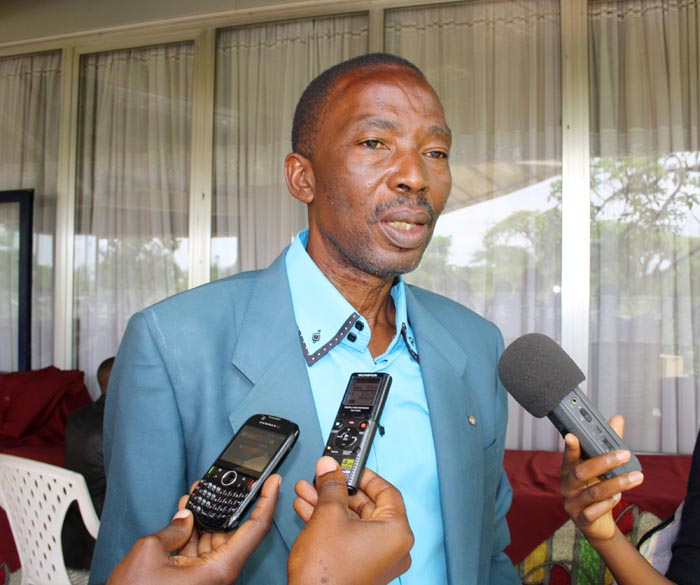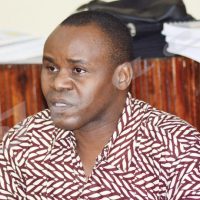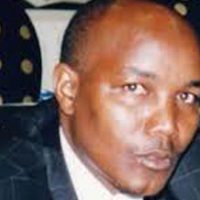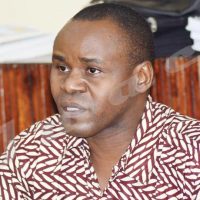Evaluating partnership between state institutions, ministerial commissions and civil society about fighting corruption situation after three months has been the main objective during the workshop held at “Source du Nil” Hotel this 19 November 2013.-Yves Didier Irakoze

Hassan Mahwege: “Those kinds of workshops will often take place in order to assess what we have done, where we are and the step we have reached to fight against corruption.”©Iwacu
According to Hassan Mahwege, Deputy Secretary General of Observatory for Fight Against Corruption and Economic Embezzlement (OLUCOME), recommendations issued from the workshop of 25July 2013 showed that relations and exchange of information between the Civil society and state institutions in fighting corruption are improving. He goes on saying that cases like INSS and Amanda Drinks and the one concerning pieces of cloths seized from Siyoni Market and other cases have been denounced. But, there is still a big step to be achieved because some cases are denounced but in vain. “There is somehow improvement considering the survey of 2012-2013. The place of Burundi has advanced of one place and the country comes 4th in EAC in terms of corruption thanks to the effort made by each of us in eradicating this threat,” points out Mahwege. He adds that they have to create a very close collaboration in order to eradicate it effectively; those kinds of workshops will often take place in order to assess “what we have done, where we are and the step we have reached to fight against corruption.”
Everybody must be involved
Both public and private institutions as well as the civil society have to stand up and fight against corruption. And considering the percentage we have got from participants in the three groups, we have noticed that we are moving to the right position. According to Mahwege, these kinds of workshops will bring something positive in the society. One of the participants indicates that strengthening a very good collaboration, strategies have to be taken to build up harmonization, permanent dialogue and regular information exchange among the three groups.
“There is a need to strengthen an exchange platform. The government must trust the civil society and private institutions and vice versa and all the groups must consider each other as partners and not enemies,” concludes one participant in the workshop.


















 IWACU Open Data
IWACU Open Data

